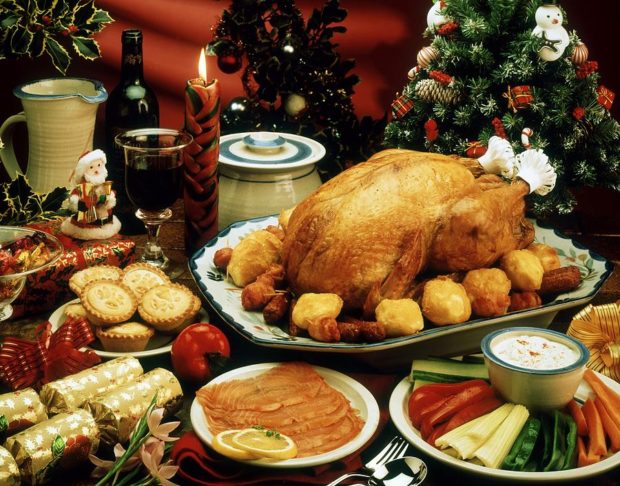
Want to forget your Christmas excess? Here’s how to eat like a Whitecap
Ah, the Christmas excess. More food and drink than your body should really consume, and then, if you’re like me, the chocolate. The mounds and mounds of chocolate. I feel fat just typing that sentence out.
After the festive period comes the usual regret. You wish you hadn’t eaten so much when you look down at your waistline and the belt buckle that’s moved up a notch more than usual. Or after your next dental visit.
Then you decide that you’re going to change in the new year. Eat healthier, exercise more, be more like those football players you watch every week. Does that sound like you? Well AFTN is here to help!
Nutrition and healthier eating is going to be on the mind of a lot of the next few weeks.
For Vancouver Whitecaps players, they have to balance the luxury of having the Christmas period off and tucking in to the goodies (not like those poor chaps in the UK!), with staying in shape and not coming back to preseason training overweight and unfit (you know who we’re talking about!!).
So just how do you fuel a top athlete? Not just at Christmas time but throughout the whole year. What are the do’s and don’ts? We caught up with the ‘Caps nutritionist Dana Lis to find out.
What’s the general nutritional modus operandi for the Whitecaps players?
Dana: Be professional about nutrition and treat it as a component of training.
How closely do they supervise how the guys are eating/fuelling themselves?
I actually have been in a pretty unique position. I’ve been completing a PhD overseas (Tasmania) so much of my work was conducted through the sport science team. The staff does not watch the players like hawks but the players are encouraged to fuel appropriately and systems are set in place to achieve this. The players that need more support or guidance are provided it (e.g. cooking sessions at home, meal plans, injury nutrition protocols).
Systems are put in place so that fuelling to augment adaptation, recovery, optimal body composition, immune heath etc. is more easily achieved. Like nutrition in any situation, it is up to the players to really optimize the tools and resources they are provided. We also continue to improve food, nutrition systems and sport nutrition science when things aren’t working or new research comes out.
Is there anything that’s a complete no-no for the players?
Fried chicken.
How do the overall nutrition recommendations change between the offseason and season?
In the offseason some players need to give their bodies a break and most will loosen up on their food choices. The offseason is also a time when many players focus on body composition changes (e.g. lean mass gains) so nutrition is tailored to support less aerobic training and more hypertrophic focused training. It’s hard to explain the intricacies of this in a few lines but overall, protein quantity, quality/type, timing and lower carb intake as training demands less of this fuel.
During the season we try to teach the player to periodize carb intake in accordance with training loads and games. Protein intake still remains high but carb is also a focus as volume, intensity and glycogen dependence is elevated (compared to off season). I also push high dietary antioxidant intake during the season. Travel, training and games loads can take a toll on the immune system.
Is there much change to those nutrition recommendations between training and actual game day? What is the general nutritional protocol on game day?
The main thing that is changed is ensuring (for the guys that are starting) that they have enough fuel in the tank. Pre-game meals are very consistent, so the players can reliably eat the same thing and they know it works for them. Half-time nutrition is a huge priority.
Game day meal timing depends on the actual kick off time but an extra snack is added mid-morning in some cases.
Fuel intake during training varies with intensity. Players are encouraged to “match their plate” to training load (e.g. more veg on lighter days and more starchy carb on heavier days).
